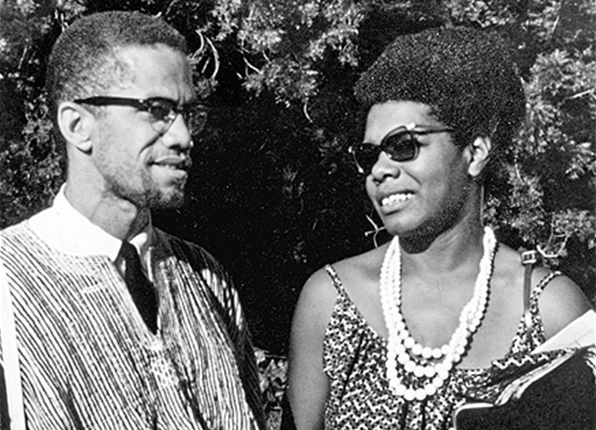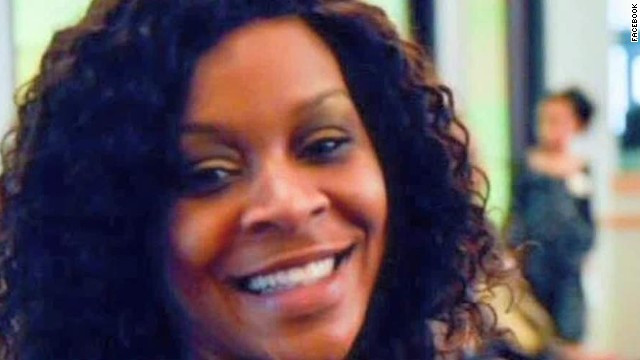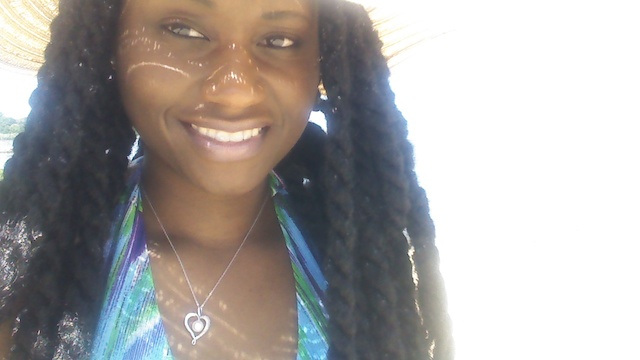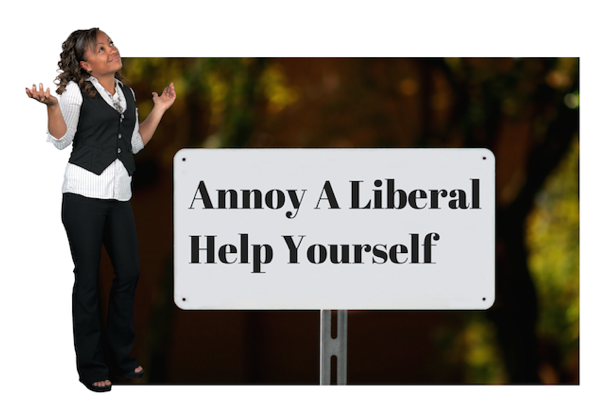The internet has unfortunately become a cesspool for the most simplistic arguments to be sensationalized. The latest finger pointing bandwagon phrase to hit the net is “cultural appropriation.” It’s being slaughtered, with a slew of would be writers refusing to actually research the meaning of the term before tossing it around carelessly. So is the case with a recent article declaring, that Black Americans were culturally appropriating African cultures by wearing African clothing. It goes without saying, that this bold assertion is as deprived of history, logic and critical analysis as “reverse racism.”
Part I: Let’s begin with the definition of appropriation.
Cultural appropriation is when a dominant culture takes, claims and establishes itself the creator of the cultural heritage and artifacts of a minority and or marginalized culture thereby erasing the history of the marginalized culture.
In Neo-Slave Narratives: Studies of a Social Logic in Literary Form, African American studies professor Ashraf H. A. Rushdy describes appropriation and how it operates:
Something gets appropriated by something else when a productive or expressive form or practices, let’s say jazz or blues or agricultural methods for growing rice, develops within one disempowered cultural group but gets used by and enriches only or mostly another empowered cultural group. The distinction between cultural groups has to do most emphatically with each group’s relationship to power, controlling the means of material production and controlling the means to mental production.
Rushdy continues:
One of the marks of that relationship between an empowered and a disempowered cultural group is that the empowered group is able to take possession of those material products, physical labors, and cultural forms and practices developed within the disempowered group. Once that something is “appropriated” it no longer functions to enrich materially or to empower socially those within whose cultural group that something developed. (p. 175)
Using Rushdy’s explanation, Black Americans as African descendants are not appropriating African cultures by wearing African clothing. The oppressive power dynamics, the enrichment that excludes African cultures, the means of controlling the material production of African clothing on the part of Black Americans is non-existent. Nor can Black American power dynamics with African cultures be compared with the power dynamics of colonial power structures that stifled Africa’s progress as was outlined in Guyanese Pan African scholar Walter Rodney’s, How Europe Underdeveloped Africa.
Part II: Black History Is African History
The historical experience of Black Americans does not begin with slavery. It begins in Africa. This is a shocking plot twist to those wishing to disconnect Black Americans from African cultures. We did not emerge out of thin air, but are instead a mixture of African people of multiple ethnic groups predominantly from Western Africa. The Trans-Atlantic Slave Trade and chattel slavery did not erase the cultural legacy of Black Americans anymore than colonialism erased the cultural legacy of African ethnic groups.
During the slave trade and chattel slavery the ancestors of Black Americans, Afro-Latinos and Afro-Caribbean people were often prevented from speaking their African languages and practicing their religions. Furthermore, the dominant Western culture demonized all aspects of Black African cultures. Still, Richard Allen and Absalom Jones founded the Free African Society and later the African Methodist Episcopal Church in 1787, which is to date one of the oldest Black American institutions in the United States of America.
They named it the “African” Methodist Episcopal Church for a reason. It was a reflection of how they viewed themselves in America. They spoke no African languages, they wore no African clothing because those things were not readily available to them. But they insisted on embracing everything about their heritage that they had access to.
Over the last 228 years, a lot of changes have taken place including the ability to reconnect with aspects of African cultures that were cut off by oppressive systems.
These reconnections are not without complications.
However, claiming that Black Americans are committing the same cultural appropriation as whites when wearing African clothing demonstrates a gross lack of basic level critical thinking skills. One can not compare attempts to reconnect to cultural origins with oppressive attempts to erase an ethnicity’s cultural legacy. Even if some Black Americans may not understand the full deeper religious meaning of various prints or tribal paints, that is completely different from seeking to erase the achievements and history of a culture’s artifacts, which is what cultural appropriation does.
Furthermore, the assumption that all Black Americans do not know the deeper meaning of various tribal prints or paints is without merit. This is especially the case due to the rising amount of African descendants converting to traditional African religions or at least bonding with various symbolic references from these religions. One can not assume, that the wearer does not know the meaning simply because they are Black American. It could be the case that they know the meaning and that’s why they wore it. It’s complicated, layered and not always executed properly, but still not appropriation.
Part III: Africa Is Not A Country, Blackness Does Not Exist In A Vacuum
Kwame Nkrumah, the first president of Ghana and Nnamdi Azikiwe, the first president of Nigeria, both attended Lincoln University, the first degree granting Historically Black College in the U.S. Nkrumah, an avid Pan Africanist, often cited the interconnectedness among all members of the Pan African World, working closely with Black scholar W.E.B. DuBois. Nkrumah is well known for his vision of a unified Africa with strong linkages to the Pan African World. “I am not African because I was born in Africa but because Africa was born in me,” said Nkrumah.
Making the statement that “if you do not belong to an African tribe, don’t wear tribal print,” is exclusionary to people that may not know the exact tribe of their family’s origin. It’s even furthermore complicated because as a mixed people, Black Americans actually come from many different tribes. Everyone does not have the privilege of knowing what tribes they come from, but they still carry the cultural heritage of those groups.
I was fortunate enough to trace my maternal lineage, with the help of AfricanAncestry.com’s DNA program. My own maternal ancestors are from the Tikar ethnic groups in modern day Cameroon. Does this mean that I suddenly became the spokesperson for all things Tikar? The answer is no. But it does mean that I have a cultural and ancestral connection that extends beyond the history of U.S. chattel slavery and any attempts to reconnect with that at best can be viewed as cultural appreciation or acculturation depending on my proximity to members of that ethnic group. The artistry and craftsmanship that my grandmother exhibited through her quilts, statues, paintings and instruments represent her heritage as a direct descendant of the Tikar people, even though she did not know she came from this ethnic group.
Additionally, there are thousands of different types of African cultures and sub-groups. Ethnic groups on the continent and throughout the diaspora borrow from one another through cultural exchanges. Exchanging languages, religions, foods, musical styles and clothing. Members of various African ethnic groups often wear the tribal prints and jewelry of other ethnic groups simply based on liking the style. There is no reason Black Americans, Afro-Caribbeans and Afro-Latinos should be excluded from this cultural exchange. Additionally, on the economic front, many marketplace sellers and African fashion designers would cringe at the thought of limiting their work to only within the confines of their tribe.
That’s not how this works.
Black Americans and other children of the African Diaspora are included in the Pan African cross-cultural process as evidenced by the spread of hip hop music throughout Africa and the creation of Rastafari communities in South Africa and Tanzania. These are both stylistic and religious exchanges that no reasonable person views as appropriation.
Part IV: Lack of Knowledge Affects Everyone, Not Just Black Americans
Miseducation and Eurocentric thinking taught through colonialism, slavery and Western education affects all members of the Pan African World in varying levels, not just Black Americans.
The need to assert authority over Africanity in the face of other African descendants is a pettiness that stems from the designed disenfranchisement of the Pan African world. It also unknowingly reaffirms anti-Black sentiments by denying the nuanced experiences and cultural heritages of all people of African descendant. Instead relying on a limited non-layered perspective of Africanity.
Additionally, the faux concern about Black American knowledge of African prints would be more believable if critics were offering classes and books that share the deeper meaning on various tribal prints.
Part V: We’ve been told the same lie.
The limited interaction between continental Africans and African descendants is highly influenced by western based miseducation and media (in both Africa and North America) that promotes anti-Blackness at every turn, leaving African descendants and Africans on the continent circling in an endless cycle of confusion and rage uselessly aimed at each another.
This leads some Black Americans to make illogical declarations like, “I’m Black Not African American,” as if Black Land is a thing that magically exists outside of Africa. Upon asking, when did they stop being African, the response will include some gibberish about not speaking an African language, not having a red carpet laid out for them when they went to Africa and the misguided belief that Jesse Jackson created the term “African American.”
No one has yet been able to answer Malcolm X’s question, “If a cat has kittens in an oven, does that make them biscuits?”
Meanwhile, some Africans will proclaim more pride in being French or British than Senegalese, Ghanaian or Nigerian. Upon asking, why they perceive Western cultures to be superior, the response will include a puzzling look as to why you don’t understand that everything white is just better.
We’ve all been told the same lie, that somehow being African is “less-than” believing that it is more refined to be disconnected from Africanity. This has lead to many of us needlessly tearing each other apart. And make no mistake, all levels of anti-Blackness around the world stems from the historical Eurocentric perspective that African people are subhuman.
As children, Black Americans often used heard the term, “African booty scratcher.” I was called African Booty Scratcher daily, being a little dark skinned Black girl with short nappy hair. This term was not reserved for African immigrants but for all dark-skinned children. Black children were reiterating the negative stereotypes of African people that surrounded us on a daily basis through media, the Western education system and older generations. And it hurt.
In fact, there is a meme floating around the net that says, “You called me an African Booty Scratcher in school. Now you’re wearing a dashiki.”
Yet few who circulate this meme will admit that their parents also held onto negative stereotypes of Black Americans and Jamaicans, often attempting to keep them away. Using their own derogatory terms to describe them.
Though this generation has more opportunities to form cross-cultural bonds than our parents, there are those among us that are harboring hurt. And turning this pain into a “you can’t share my toy attitude.” It’s time to grow up. We’re not on the playground anymore.
We are all hurting, because we’ve been taught to believe the same lies.
In Conclusion:
Black Americans, Jamaicans, Dominicans, Puerto Ricans, Haitians, Black Canadians, Afro-Caribbeans, whatever you want to call us, are members of the Pan African family. Wearing African clothing and tribal print is more revolutionary and impactful than upholding any stereotypes, slurs or one writer’s shortsightedness.
Our progress depends on our interconnectedness.
Over 400 years ago, many of us were torn from the shores of our homelands in Africa. We were beaten for speaking our languages, shunned for our skin, raped, murdered and brutalized. Some of us tossed ourselves over the sides of ships in order to see freedom through death. We have witnessed our family members hanging from trees. We have survived a horror like no other and still have the unmitigated gall to walk around in 2015 with our tribal print and paint. Our ancestors are somewhere smiling.
Despite not being born in Africa, like Nkrumah proclaimed, Africa was born in us. Overthrowing the tools of oppressive systems, gaining self knowledge and reconnecting with our origins may not always be perfect or without growing pains. But it is not and never will be cultural appropriation.
It’s a layered, nuanced, complicated triumph.
P.S.
I am a member of the North American Delegation of the 8th Pan African Congress. We are currently in the second phase of the 8th PAC. The North American delegation is hosting a planning session at Medgar Evers College in Brooklyn, NY this October. We’d love for you to attend. To be included on our mailing list email OurLegaci@gmail.com.
 Jessica Ann Mitchell Aiwuyor is a writer, social justice advocate and the founder of Our Legaci. Learn more about her work at JessicaAnnMitchell.com. Follow JAM @TweetingJAM and Facebook.com/OurLegaci.
Jessica Ann Mitchell Aiwuyor is a writer, social justice advocate and the founder of Our Legaci. Learn more about her work at JessicaAnnMitchell.com. Follow JAM @TweetingJAM and Facebook.com/OurLegaci.














